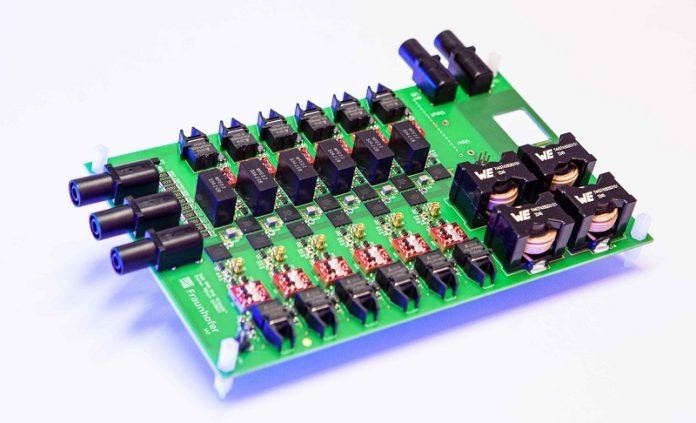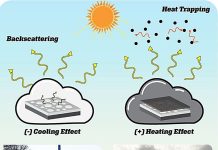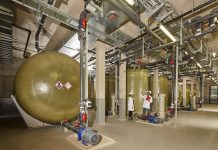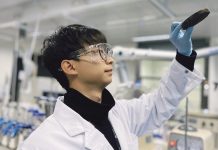
In a groundbreaking project named ElKaWe, researchers at Fraunhofer Institute for Applied Solid State Physics IAF in Germany have developed a new kind of heat pump that promises to be more efficient and environmentally friendly.
This heat pump technology uses what’s known as ‘electrocaloric’ effects and does not need any refrigerants, making it a great alternative to the current compressor-based heat pumps.
Heat pumps work by moving heat from one place to another and are very effective at producing heat. But the current models can only achieve about 50% of the maximum theoretical efficiency.
The researchers in the ElKaWe project aim to develop a heat pump that can theoretically reach up to 85% efficiency.
Now, you might be wondering what ‘electrocaloric’ is. Well, it’s quite fascinating!
When you apply an electric voltage to certain materials like special ceramics or polymers, they heat up.
If you remove the voltage, they cool down again, and this process is nearly completely reversible. In each cycle of applying and removing the voltage, heat is pumped from one place to another.
An important factor determining how efficient these heat pumps are is the power electronics in the system. This is where the Fraunhofer team has made a significant achievement.
They developed an ultra-efficient circuit design for voltage converters using a material called gallium nitride (GaN). These circuits reached a whopping 99.74% electrical efficiency, setting a new global benchmark.
This new converter significantly outperforms the previous ones, which had a conversion efficiency of less than 90%.
So, why is this important? Higher efficiency of the power electronics means that the entire heat pump system can perform better. Before, the efficiency of the electrocaloric heat pump systems was limited by the losses in the electronics.
But with this new, ultra-efficient converter, the heat pumps can perform much closer to their maximum theoretical efficiency.
Dr. Stefan Mönch, a researcher at Fraunhofer IAF, is quite hopeful about this development. He says, “Our ultra-efficient power electronics make it realistic for the first time to achieve well over 50% of the maximum theoretical efficiency with electrocaloric heat pumps, even at the system level.
There is still a lot of research to be done, but in [the] future this technology could become a more efficient and completely emission-free solution for heating and cooling.”
Six Fraunhofer Institutes are working together on the ElKaWe project, which aims to develop electrocaloric heat pumps for heating and cooling without the need for compressor technology and refrigerants.
They hope this work will show how this technology can be a game-changer for efficient, emission-free heating and cooling in the future. So, who knew heat could be so cool!
The study was published in the IEEE Journal of Emerging and Selected Topics in Power Electronics.
Follow us on Twitter for more articles about this topic.



